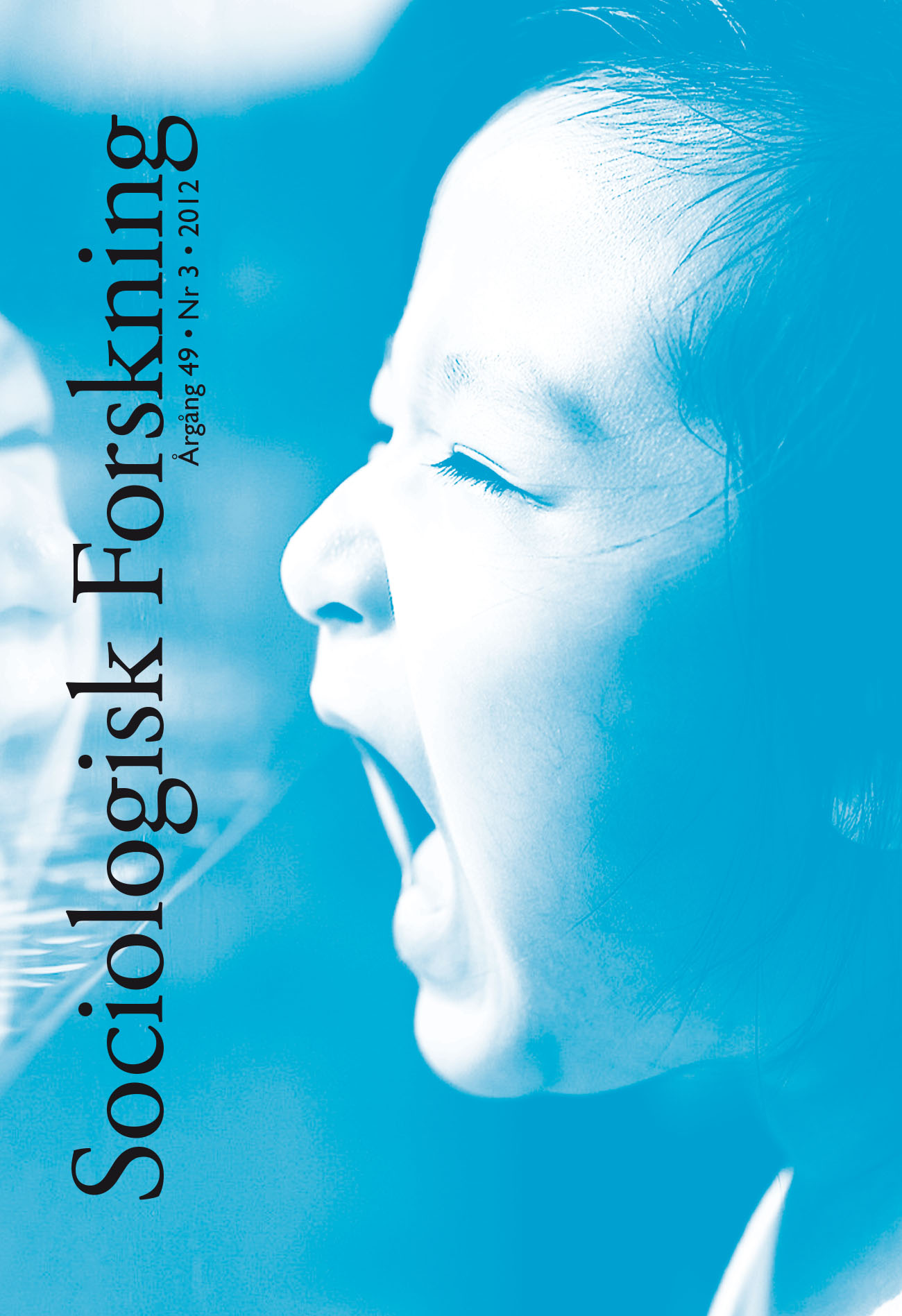Utbrändhet som arbetsskada och motståndsberättelse
DOI:
https://doi.org/10.37062/sf.49.18405Nyckelord:
Burn-out, occupational injury, insurance, moral identity, narrative analysisAbstract
Burnout as occupational injury and narrative of resistance
During the last years of the 1990s and the first years of the 2000s, burnout was a common diagnosis for sick listing in Sweden. That burnout is directly related to working life was acknowledged by medical experts as well as in the public debate. The number of applications for occupational compensation due to social and organizational factors in work rose from a very modest degree to nearly a forth of the claims among occupational diseases. In this article 48 individual claims for compensation in cases of burnout as occupational disease are analyzed as narratives of resistance. In this respect they are seen as alternative accounts of risk in working life, but also as narratives about resistance. The concept, narratives of resistance, is used to understand the claimants’ argumentation for rights to compensation, as well as how the claimants draw upon public narratives of societal transformation to understand how they themselves have become ill from occupations that normally are not thought to be hazardous. One conclusion from the analysis is that the claimants regard their illness as the resistance of the body against changes in society and working life.
Downloads
Publicerad
Referera så här
Nummer
Sektion
Licens
Allt material i Sociologisk Forskning publiceras med omedelbar öppen tillgång (open access), under Creative Commons-licensen CC BY-NC-ND 4.0.
Allt innehåll i tidskriften är fritt tillgängligt utan kostnad och får för icke-kommersiella syften fritt läsas, laddas ned, kopieras, delas, skrivas ut och länkas. Innehållet får dock inte ändras. När innehållet används måste författare och källa anges. Upphovsrätten till innehållet tillhör respektive författare. Inga publiceringsavgifter tas ut.





